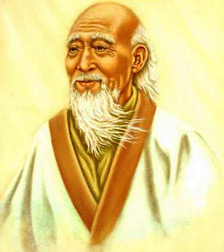How to teach sans teaching
 When it comes to good governance, morality and spiritual life, we are
reminded of Socrates, Plato and Aristotle who laid the foundation for
western philosophy. While they were seeking stability in a constantly
changing world and trying to unravel the mystery of the cosmos, Chinese
philosophers were more concerned with morality and ethics rather than
the nature of the universe. It is ironic that western and eastern
philosophies were evolving at the same time ie. the 6th century BCE. When it comes to good governance, morality and spiritual life, we are
reminded of Socrates, Plato and Aristotle who laid the foundation for
western philosophy. While they were seeking stability in a constantly
changing world and trying to unravel the mystery of the cosmos, Chinese
philosophers were more concerned with morality and ethics rather than
the nature of the universe. It is ironic that western and eastern
philosophies were evolving at the same time ie. the 6th century BCE.
As the ruling Zhou dynasty disintegrated, China was plunged into a
state of internal warfare. When a country is in turmoil wise people try
to come up with solutions. The same process took place in China. A new
social class of administrators and magistrates took upon themselves the
task of devising strategies to run the country effectively. They mulled
over various theories and finally came up with a large body of ideas
which came to be known as the Hundred Schools of Thought.
One of the most prominent ideas contained in the Hundred Schools of
Thought was the Daode jing (the Way and its Power). It was one of the
first attempts to formulate a theory of just rule, based on de (virtue).
Dao (the Way) is the source of all existence. It is also the root of all
entities seen and unseen. Dao is achieved through Wu wei (non-action).
It does not mean doing nothing. On the contrary, non-action means acting
thoughtfully but not impulsively.
|

Knowing others is intelligence. Knowing yourself is true
wisdom. - Laozi |
On the other hand, Wu wei means a solitary life of meditation and
reflection. Living in peace, simplicity and tranquillity was also an
integral part of non-action. Finally Wu wei insists that we should act
and live in harmony with nature.
Ethical government
Under the Zhou Dynasty political decisions were justified on the
mandate of heaven (god-given authority). As a result, the people had to
obey the rulers without questioning them. However, with the
disintegration of the Zhou dynasty, the situation began to change. In
the 5th century BC the eminent Chinese philosopher Confucius set out his
rules for personal development and ethical government.
Daode jing has been attributed to Laozi (Lao Tzu). He is a mythical
figure because we do not know very much about him. According to some
sources, Daode jing was compiled by a number of scholars. However, there
is historical evidence to say that Laozi lived during the Zhou Dynasty.
In fact, he was known as the Old Master.
Some scholars say that he was an archivist at the Zhou court. Even
Confucius reportedly consulted him on matters relating to rituals and
ceremonies. Legend says that he left the court in search of solitude
when Zhou dynasty lost its ruling power. It is said that he wrote Daode
jing on a request by a border guard who requested him to leave a record
of his wisdom.
Daoism
According to Daode jing, man has to live in harmony with nature.To
lead a well-balanced life, he should not over-exploit natural resources.
For instance, man should avoid over-fishing in the lake to maintain the
ecological balance. Gradually, Daode jing led to the formation of the
philosophy known as Daoism.
We find it difficult to draw a parallel between Daoism and western
philosophy. For the ancient Chinese, changes in the world were cyclical.
Seasons came and went, day was followed by night. Western philosophers
saw cyclical change in a different perspective. They said everything is
in a flux; nothing remains the same. According to Daoism, the cyclical
changes are complementary properties that make up a whole. The world, in
fact, is a product of complementary properties that had undergone
various changes over a long period of time.
Laozi said human are one of the manifestations of change. He said man
has no special status in comparison to other natural creations. However,
because of manís desire and free will, he can stay away from Dao and
disturb the ecological balance of nature. By doing so, he does not lead
a virtuous life. In other words, when man fails to live in harmony with
nature, he will have to face the consequences.
Human experience
When we consider the whole gamut of western and eastern philosophies,
we find that philosophers are struggling to formulate ways that do
justice to human experience. Even western philosophers such as
Heraclitus, Soren Kierkegaard and Friedrich Nietzsche grappled with the
problem of language. For them language was inadequate to express lofty
ideas.
Laozi had the same problem. As a result, we find it difficult to
understand what he says. According to him, the good and the bad exist in
an everlasting exchange. For instance, rain is good in times of drought;
bad in times of floods. Similarly, great size might be good on the
football field, but bad when you are trying to squeeze through a tiny
window opening during a fire. The good and the bad are relative
opposites. Strangely, things become good or bad according to our
reactions. They are not fixed states.
Laozi used to pick up trash while he was taking his morning walk
without asking others to save the environment. Similarly, he hobnobbed
with everybody sometimes walking away when somebody told him a racist
joke. Thus the sage preached without preaching and taught without
teaching. In that respect, he is a unique philosopher.
|

